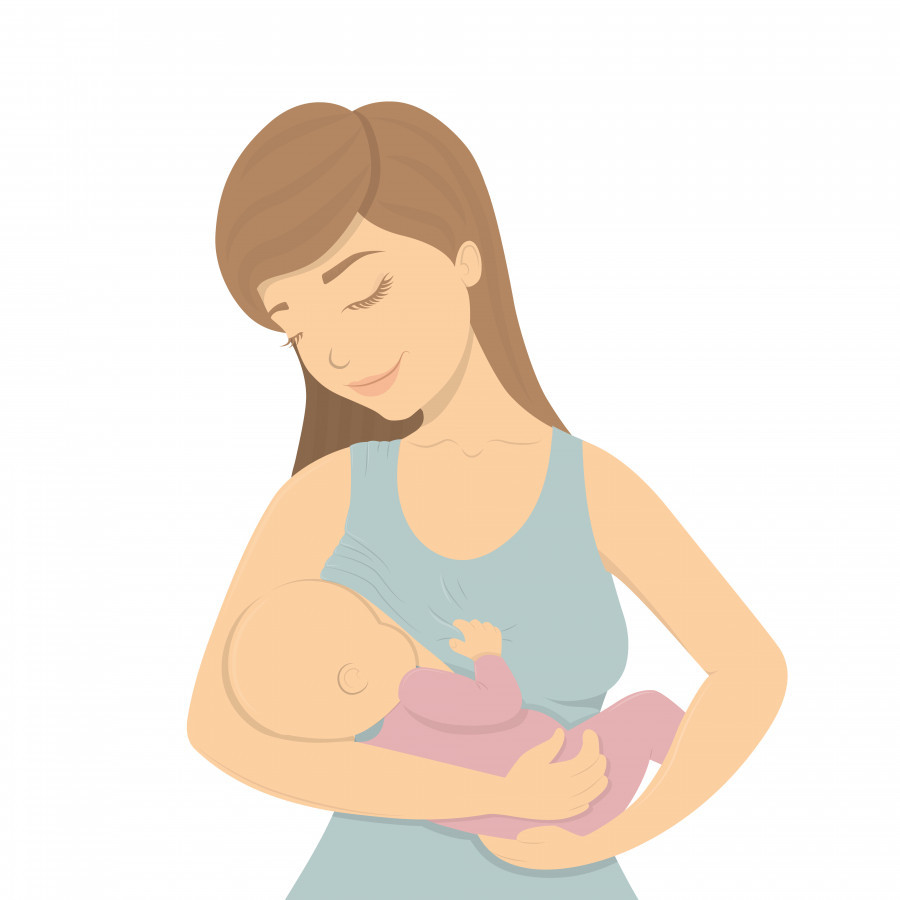Health
Pandemic affects breastfeeding, newborn nutrition
As authorities failed to inform people that infected mothers can breastfeed, health experts say hundreds of babies have been deprived of breast milk.
Arjun Poudel
When Shraddha Shahi, a nurse serving at the intensive care unit of the Om Hospital and Research Centre gave birth to her son, the first wave of the coronavirus pandemic had already started.
Shahi took 58 days of maternity leave as per the hospital rule and returned to work.
“When I resumed my job, the number of new cases was rising throughout the country and the intensive care units at hospitals were already full,” said Shahi.
“In such a situation, seeking a leave extension was out of the question so I resumed my work. But this deprived my son of exclusive breastfeeding.”
This is a common refrain among many working new mothers, who have been unable to exclusively breastfeed their babies. And the ongoing pandemic has also posed serious challenges to breastfeeding and the nutrition of infants.
“As I have to wear personal protective equipment at the intensive care unit, it was not possible to go home during the break or express my breast milk in a pot and send it home, ” said the 29-year-old mother of two.
Hundreds of newborns were deprived of breast milk due to Covid-19 infection in the mother or babies, and the apathy of the authorities to launch an awareness drive to educate people that infected mothers also can breastfeed their babies. The United Nations Children’s Fund, UNICEF, has constantly been saying that even Covid-19 positive mothers can breastfeed their babies.
“A mother can breastfeed, even if she develops symptoms of coronavirus infection such as fever or a cough,” UNICEF says on its website. “The benefits of breastfeeding far outweigh the risks of infection.”
But some mothers say they were not allowed to breastfeed after testing positive for the coronavirus. Sarita Gharti, a Covid-19 survivor, said, “When I was infected, my in-laws didn’t allow breastfeeding so my 14-month-old daughter was deprived of breast milk for several days. We didn’t know at the time that breastfeeding is safe even if the mother is infected with Covid.”
Nutritionists say breastmilk offers the best protection and nourishment for the infant. It contains vital antibodies and other nutrients that can help the baby’s immune system to fight infections.
However, it is important that the mother follows all the recommended practices to prevent her from spreading the infection to her baby or other members of the household. For that, she has to wash her hands with soap, wear a facemask and clean any surfaces that she touches.
“If the mother does not have a facemask, she should still continue to breastfeed because the benefits are greater than the risk of infection,” UNICEF says.
This shows the authorities are not doing enough to create awareness that infected women can breastfeed. Besides, the lack of childcare centres at workplaces is also depriving infants of breast milk.
Shahi said there is no childcare facility at her hospital and it would be risky for her to take the baby to work amid the coronavirus pandemic.
This has given rise to a more alarming situation: more mothers are feeding newborns formula milk in recent years.
A study carried out by Helen Keller International and the Health Ministry in 2019 showed around 57 percent of new mothers in the Valley start feeding formula milk within three days of childbirth.
According to a report of the Multiple Indicator Cluster Survey-2019, the practice of bottle feeding has increased more than twofold compared to the 2014’s Multiple Indicator Cluster Survey-2019.
The report showed that 23 percent of women bottle-feed their babies, which was 12 percent in 2014 and the Bagmati province has the highest percentage at 39, which was 18 percent in 2014. In Gandaki Province, 28 percent women bottle-feed their babies, which was only 11 percent in 2014, followed by 27 percent in Province 1, which was an increase from 14 percent, 24 percent in Sudurpaschim Province, up from 7 percent, 16 percent in Lumbini and Karnali provinces, up from 12 percent, and 14 percent in Province 2, a rise from 7 percent in 2014.
According to UNICEF, cow milk is not suitable for any baby less than 12 months of age because it does not have the right balance of nutrients.
Formula milk is risky because it is expensive and difficult to prepare safely. Sometimes families dilute it too much to make it last longer and don’t have clean water to mix it with. Their babies may then fall sick with diarrhoea or become malnourished. And once a mother reduces or stops breastfeeding, her milk production can decline quickly. This can make it difficult for her to resume breastfeeding when she wants to. Giving infant formula is the last resort while a mother is recovering from Covid-19, and until exclusive breastfeeding is not possible.
“And what is concerning is even doctors and other health workers are allowing women to bottle-feed the babies if they give birth to the babies through a Cesarean section,” Nisha Sharma, research manager at Helen Keller International, told the Post. “People are opting for formula milk or cow milk if they think that mother’s milk is not sufficient for the baby but this is a harmful habit.”
Officials at the nutrition section under the Family Welfare Division of the Department of Health Services admit that the ongoing pandemic poses new challenges in the child nutrition field.
“The pandemic has definitely impacted breastfeeding, which ultimately impacts the child's nutrition and health,” said Kedar Parajuli, chief of the section.
He said that his office has shifted the focus of the awareness programme to health facilities, as more women give births at hospitals these days.




 16.12°C Kathmandu
16.12°C Kathmandu















